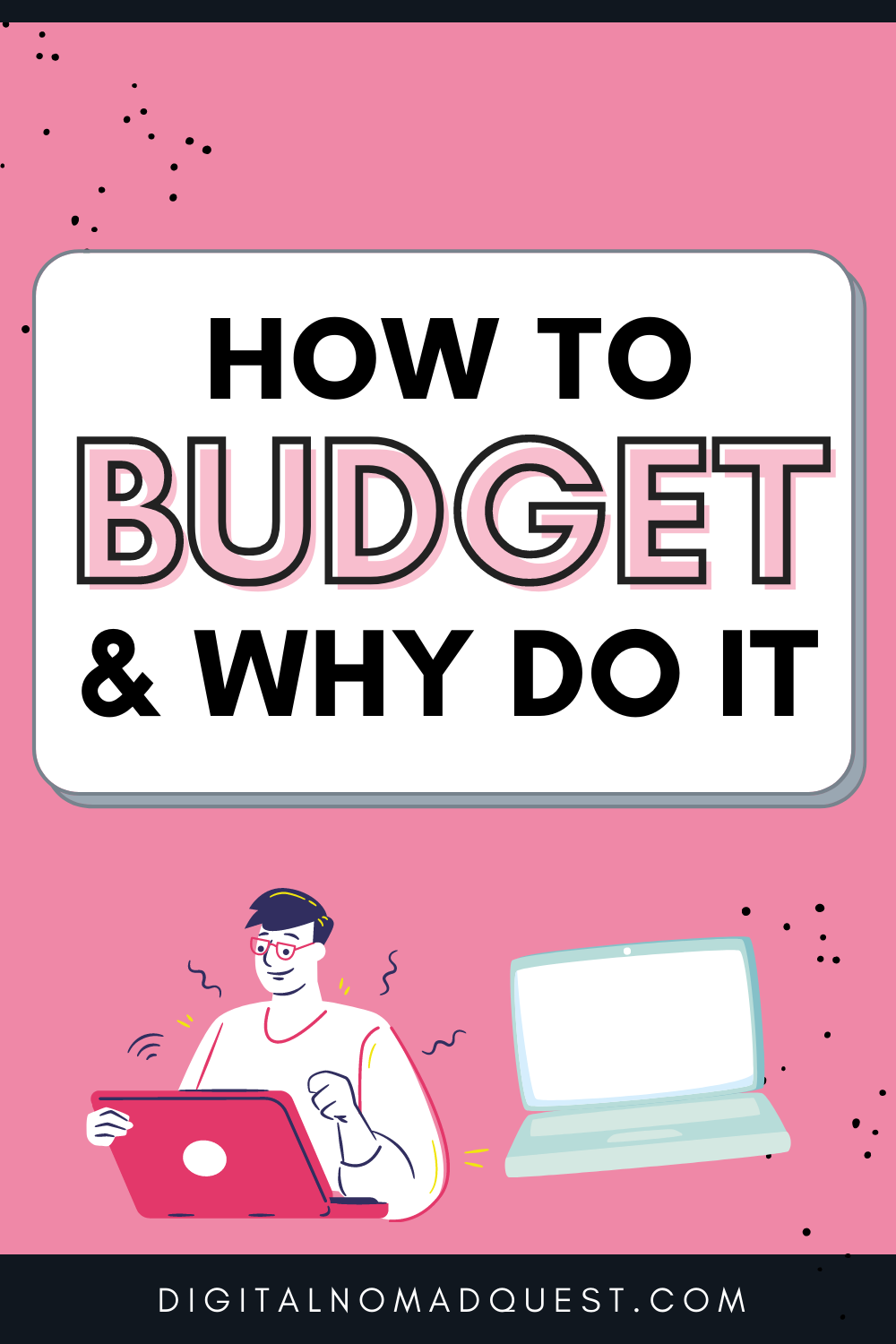In this post we go over what is a budget and why it is important. Budgeting is becoming increasingly more common. When you take into consideration the mountain of transactions we make on an annual basis such as household expenditure, student loan repayments, credit card bills to name but a few, it becomes clear that having a strategy for managing our money has never been more important. Everybody wants to live within their means and even put a little money on the side to save for the finer things in life.
What is a budget?
Essentially, a budget is a means of planning and analysing your finances over a set schedule in order to manage your money effectively. It’s a tool used by governments, businesses and individuals for a wide range of reasons.
A budget can also refer to any amount of money that is allocated to a specific purpose, for example you may have set aside a precise value of money in the past to spend during a vacation or a weekly allowance that you allocate to pay for fuel. These could be defined as your ‘vacation budget’ or your ‘fuel budget’.

Why is budgeting important?
Taking an active role in managing your personal finances is crucial to maintaining a healthy cash flow. Wherever you are financially, budgeting is going to prove beneficial – anyone can start tracking their financial movements in order to plan for the future, whether it’s a child saving their allowance to buy a new bike or a couple budgeting to save for their big day.
The most common motivating factors for individual budgeting are:
- Generating wealth – budgeting is a great method for growing your existing, personal finances.
- Debt – debt comes in many forms and we’re constantly exposed to its dangers. Budgeting can not only help avoid crippling debts but also help re-structure and safely manage existing repayments.
- Retirement – planning for your future is incredibly important. We all want that nest egg for security in later life and budgeting can be a key component to achieving your retirement goals whether its to support yourself and your family or secure an early retirement.
- Unemployment – losing a job or a secondary source of income is one of the most stressful moments in life and it can happen at any moment, unexpectedly. When your salary is drastically reduced, planning your next steps with your existing income is paramount.
Who is budgeting for?
A recent poll determined that, on average 8 out of 10 Americans currently use a budget in some form or another – a pretty high proportion of the population. These statistics definitely outline the importance of budgeting, but what about the other twenty percent of people who don’t have a budget? The same poll found that the most common reasons preventing people from budgeting were lack of income, not having the time to commit, or they had budgeted before but not seen any benefits.
If you’re amongst the 2 out of 10 who doesn’t have a budget for any of these reasons, it doesn’t have to be that way. They way that we manage our money is changing and there’s an ever increasing list of resources available to make budgeting successful.
Different types of budget
We budget for different reasons so it’s only natural that we find the most effective budgeting strategy to meet our financial goals. Trying to find the best budgeting method can be tricky so knowing how each strategy works is going to be a huge help.
Traditional Budgeting
In order to create a traditional style budget, you’ll need to track your financial behaviour. You can do this over a few months or a year in order to create a template on which to base your budget. By having an idea of where your money has gone in the past, you’ll be able to optimise your future spending.
It’s a fairly easy way to start budgeting as you can review any unnecessary costs from a certain time period and eliminate them in order to make gains. There may be outgoings that you don’t even know about if you don’t review your bank statements regularly.
Whilst it’s a user-friendly method, traditional budgeting has one main drawback; things change. Your financial situation won’t always be an accurate representation of the past. Maybe you’ll get a promotion or change your job, maybe you’ll move to a more expensive apartment or get a dog – all of these lifestyle changes are going to effect your finances and traditional budgeting doesn’t leave much room for spontaneity.

The 50/30/20 Budget
In her 2005 book All You’re Worth: The Ultimate Lifetime Money Plan, Elizabeth Warren introduced the world to the 50/30/20 budget strategy. The ideology is fairly simple but effective; by allocating a percentage of your salary to certain outgoings you’ll be able to control just how much money you spend on non-essential items making room for savings.
Take your monthly, post-tax salary and set aside 50% for the things that you really need. For example, your rent or mortgage payments, your food bill, utilities and essential bills, insurance and transport costs. If these costs amount to more than 50% of your salary it will be useful to start re-structuring your essential outgoings in order to make effective use of this budget. You can start by changing your cell phone plan or finding a cheaper supermarket for example.
Secondly, you’ll need to allocate 30% of your salary to what Warren calls ‘wants’. These are the non-essential things that we spend on money but things that improve our quality of life, such as shopping, eating in restaurants, attending music concerts or the theatre, gym memberships etc.
Now that you’ve budgeted 50% of your salary towards essentials and 30% towards non-essentials, you’re left with the remaining 20% which can be directly saved contributing to those long-term financial goals or debt repayments.
Zero-based budgeting
This is a budget strategy used by corporations to ensure a balance balance between expenditure and productivity. However, the methodology translates well for personal finances as its main goal is to make sure that all spending is justified.
By allocating every outgoing dollar a purpose, whether it be rent, food, credit card payments or public transport costs, you’re much less likely to squander cash aimlessly. A good method for creating a zero-based budget is to build a spreadsheet that deducts each necessary spend from your monthly salary finishing with a bottom line of zero. Alternatively, there are online tools available to help you calculate a zero-based budget. This budget calculator can send you on the path to starting your zero-based budget today.
Planning your finances down to a bottom line of zero is a great way to utilise every dollar but it doesn’t really allow much room for savings, unless of course you’re factoring in any money that goes on the side into your budget plan.
Envelope Budgeting
This classic method of money management is exactly what it sounds like and is uncomplicated. By designating a set amount each month towards a cost, or an ‘envelope’, you’ll be a position to play with whatever cash is left over.
Envelope Budgeting is a simple means of staying on top of your money. It also reduces the risk of going overboard on certain costs, after all if you only have a certain amount designated for a cost, it’s impossible to overspend.
The best resources to help you with your budget
Nobody wants to spend hours of their free time creating spreadsheets or trawling through bank statements – there’s plenty of better ways to enjoy yourself. With the aid of budgeting apps and templates you can start keeping track of your finances with little effort.
Personal Capital
As far as budgeting apps go, Personal Capital is perhaps the best and amongst the most used. Mint allows its users to sync all of their bank, savings and credit accounts in order to create a complete view of their financial activity. Creating an account is free and will grant you access to hassle free money management, financial advice and the ability to create bespoke budgets.
Personal Capital analyzes your spending patterns and breaks down your purchases into categories giving you an exact overview of where your money goes each month. By utilizing this data, you can choose categories in which to reduce outgoings and start optimizing your finances.
There’s also a daily budget tracker so you’ll be in a great position to plan ahead and set money aside for regular bills and utility payments.
Sign up for Personal Capital here.
PocketGuard
This app is not only handy when planning a budget – it’s also super stylish debunking the myth that budgets are boring. As with Mint, you’ll be free to link all of your financial accounts in order for the app to generate a broad view of your financial position. However, what sets PocketGuard aside is its ‘in my pocket’ feature which tells you exactly how much free cash you have at your disposal.
As well as knowing what’s safe to spend on leisure and non-essentials, PocketGuard allows its users to create targets and will automatically personalise you budget in order to achieve them. PocketGuard also allows its users to set limits in certain spending categories, freeing up funds for other essentials. So if you’re looking for a budget to boost your savings, PocketGuard could provide a potential solution. They also have a great blog full of helpful information regarding budgeting and savings.
Goodbudget
Saving money and paying off debt isn’t easy. However, Goodbudget is designed to aid its users in such tasks. Goodbudget uses the envelope method so you’ll be able to assign different amounts of money to different causes, for example your electricity bill or your monthly spend on gasoline.
A great feature of Goodbudget is the ability to sync your accounts with your partner or family members in order to save and plan collectively. The idea behind having this degree of transparency is to eliminate the chance of disagreements over money and generally make life easier.
With Goodbudget you can choose between free and paid subscription. The free version entitles its users to ten envelopes to be utilised from one account. However, for a monthly fee of $7, you’ll be free to link unlimited accounts and create and unlimited amount of envelopes. You’ll also have better customer support and the ability to use the platform across more devices.
Vertex42.com
If you’re the kind of person who prefers a more hands-on approach to your finances but lack the time to set up a detailed budget, Vertex42.com provides lots of different templates for spreadsheets compatible with Excel and Google Sheets. All you have to do is choose the one you like best, download it and start tracking your finances independently.
As well as budgeting templates, the website is packed with resources to make money management an efficient and stress free process. You can also access time sheet templates, invoices, personal finance calculators allowing you to fully analyse your spending. If you’re self-employed and looking for a more thorough budget, this will prove a great resource for you. Check out the ‘how to make a budget’ section of their site to gain access to templates, guides, expense trackers and more.
Final thoughts
Let’s be honest – it’s not the most glamorous thing to do but keeping an eye on your finances is essential to having a healthy bank balance at the end of each month and planning for the future. If you’re already budgeting and not seeing many results, it may be worth reviewing your strategy and changing it to best suit your needs and what you want to gain from your money.
If you’re new to budgeting, then hopefully the information and resources provided in this article will send you on the path of financial freedom and empower you to make the most of your salary. It really doesn’t have to be a chore and even micro managing your money will increase its potential yield.
References:
- https://www.debt.com/research/best-way-to-budget-2019/
- https://books.google.pt/books?id=IfGaD4FKm04C&newbks=0&printsec=frontcover&hl=en&redir_esc=y#v=onepage&q&f=false
- https://www.thebalance.com/the-50-30-20-rule-of-thumb-453922
- https://dollarsprout.com/zero-based-budget-calculator/
- https://budgeting.thenest.com/define-traditional-budgeting-24338.html
- https://www.mint.com/
- https://pocketguard.com/
- https://www.thebalance.com/what-is-envelope-budgeting-1293682
- https://goodbudget.com/what-you-get/
- https://www.vertex42.com/ExcelArticles/how-to-make-a-budget.html
- https://www.nerdwallet.com/blog/finance/what-is-a-budget/
- https://www.debt.com/statistics/
- https://go.hfcu.org/blog/how-many-americans-use-a-budget



